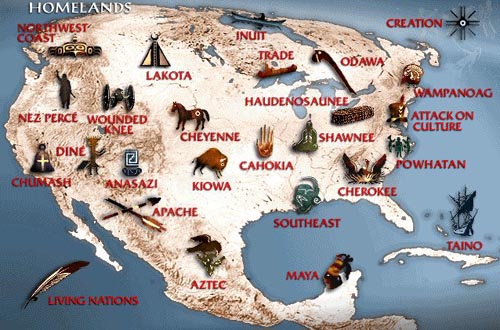The level playing field myth
By âpihtawikosisân
However, in acknowledging the past but cutting it off from the present, there is a strong implication that at some point, Canada got itself sorted out and began dealing fairly with Indigenous peoples. The exact date of this occurrence is never mentioned, so the driving events that led to ‘the change’ vary greatly in the opinions of those making this claim. The idea is that policies and actions taken in the past were driven by inexcusable racism, whereas policies of today, if they fail Indigenous people, fail because of incompetence rather than malice or structural design.
This is a central pillar of the western liberal myth of a level playing field: recognizing that Indigenous peoples have legitimate grievances stemming from awful things that were done in the past, but that the advent of a modern democracy means that we are now all equals and we have an obligation to behave as such.
What this part of the argument always relies upon is the implicit notion that any remaining problems faced by Indigenous peoples stem from an inability for people living in Canada to commit to a standard of “equal citizenship and equality before the law.” This charge will be levied at First Nations leadership and Canadian politicians both. There is little need then to understand how historic injustice has molded and shaped conditions today, and continue to find structural expression within the Canadian context. There is even less need to deconstruct how ongoing injustices are inextricably rooted in that history. Instead, a bright line is drawn between the past and the present we could all be living in if only everyone embraced liberal democracy wholeheartedly.
Human rights or Aboriginal rights?
Reflections on the UN Declaration on the Rights of Indigenous Peoples
By Peter Kulchyski
Aboriginal rights, by contrast, are rights that only certain people, Indigenous peoples, have, by virtue of being Indigenous. In effect, Aboriginal rights reflect a notion of cultural particularism. Indigenous cultures have become threatened as colonialism left many Indigenous peoples as a minority in their own homelands. We do not all have Aboriginal rights, nor should we. Aboriginal rights stem from the struggles of Indigenous peoples. In a way, they could be seen as a specific form of customary rights, rights that developed over time through repeated practice of an activity, rather than abstract rights that reflect a notion of how all people are the same. Aboriginal rights have tended to be asserted in rural contexts and to emphasize social collectives.
This distinction is an important one, as human rights can be used in justifying attacks on Aboriginal rights. We saw this happen in 1968-69 with the White Paper, a set of policy proposals developed by the federal government that would have done away with the Aboriginal and treaty rights of Indigenous peoples in Canada by ensuring that they would become “equal” with all other Canadians. A human right to equality became the battering ram that threatened to destroy Aboriginal rights. Indigenous peoples in Canada fought a bitter but eventually successful struggle, momentously defeating the White Paper (at least as an official policy).
It's wrong to pretend these political relationships don't exist, especially since they're enshrined in the US Constitution. If you don't like what the Constitution says, go ahead and amend it. Otherwise, keep your ignorant opinions to yourself.
For more on tribal sovereignty, see End Race Based Law Inc. and GOP Activist: "Sovereignty Is Bunk."


No comments:
Post a Comment